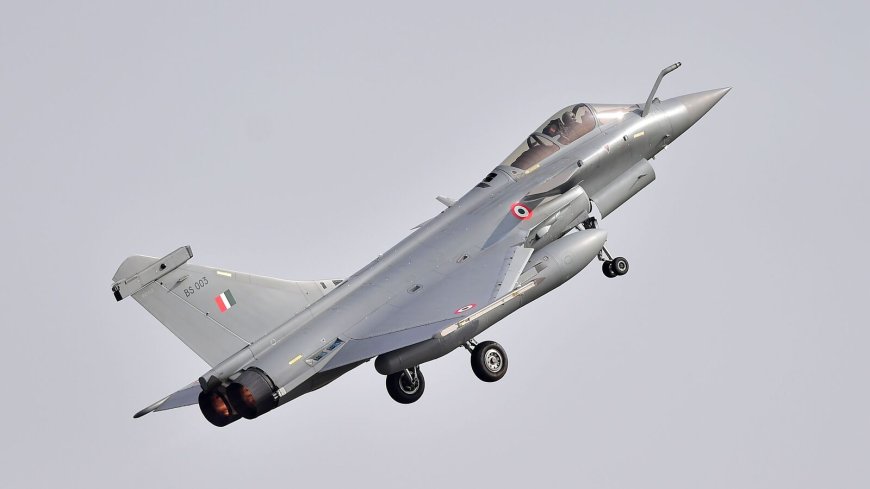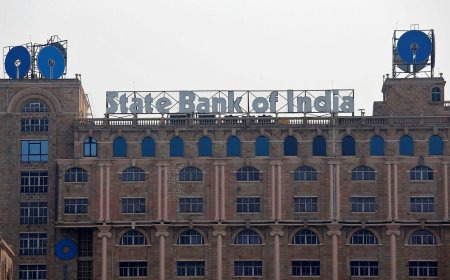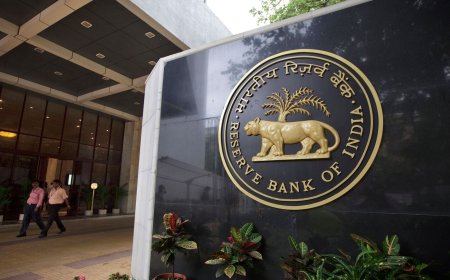India-Pakistan Tensions: Dassault Aviation Shares Rally Amid Rafale Buzz
Amid renewed India-Pakistan border tensions, Dassault Aviation's Rafale fighter jets are back in focus. This article explores the impact on defence stocks, market sentiment, and geopolitical implications.

India-Pakistan Conflict: Dassault Aviation Share Price in Focus Amid Rafale’s Buzz
Introduction: A Familiar Storm Brews Over the Subcontinent
Tensions between India and Pakistan are once again flaring up, reigniting decades-old concerns over regional stability in South Asia. With a minor cross-border skirmish snowballing into a diplomatic standoff, the focus has swiftly shifted to India’s military preparedness — and in the midst of this spotlight stands the iconic Rafale fighter jet. As war rhetoric dominates news cycles, French aerospace and defence manufacturer Dassault Aviation is experiencing renewed market interest, with its shares reacting sharply. Investors, defence analysts, and geopolitical observers alike are eyeing the stock as a barometer of regional tension and military posture.
India-Pakistan Tensions: The Catalyst
The latest round of conflict began with reports of ceasefire violations along the Line of Control (LoC), escalating into accusations from both sides. India has responded with a strong diplomatic stance, coupled with bolstering of air and ground defences in sensitive border regions. Pakistan, meanwhile, has called for international intervention but continues with aggressive posturing. This familiar geopolitical script, however, unfolds in a new era of defence strategy — with advanced military technology and new assets like the Rafale now forming the backbone of India’s deterrence capability.
Rafale Jets: The Game Changer Returns to the Spotlight
The Rafale fighter jet, inducted into the Indian Air Force (IAF) in 2020, has re-emerged as a symbol of India's aerial superiority. With 36 units already delivered and talks underway for additional squadrons, the buzz around Rafale is again peaking. These 4.5-generation omnirole jets offer deep-strike capability, beyond-visual-range missiles, and integrated electronic warfare — all vital in a scenario of rapid escalation.
The geopolitical buzz around Rafale is not just about defence preparedness; it’s a business story too. Every mention of Rafale on the Indian news cycle pushes Dassault Aviation closer into the radar of market watchers.
Dassault Aviation Shares: Riding the Geopolitical Wave
In recent trading sessions, Dassault Aviation shares have posted noticeable gains on the Paris Stock Exchange. While broader European markets have shown mixed sentiment amid economic uncertainties, defence stocks — especially those with proven track records like Dassault — have enjoyed a steady upward trajectory.
According to market analysts, three key reasons are driving Dassault's current stock momentum:
-
Renewed Focus on Defence in Asia: India's rising tensions with Pakistan push defence procurement into top priority.
-
Export Pipeline Momentum: Countries like Egypt, UAE, and Greece have expressed interest in Rafale jets after India's successful deployment.
-
Increased Budget Allocation: France, under President Macron, is boosting its own defence manufacturing capabilities, further bolstering Dassault's order book.
Market Sentiment: Defence Stocks in Bullish Mode
The defence sector often operates counter-cyclically — thriving when uncertainty looms. As the world sees rising geopolitical conflicts, from Ukraine to Taiwan to South Asia, defence stocks are gaining traction. Dassault Aviation is not alone in this bullish phase. Global defence majors like Lockheed Martin, BAE Systems, and Boeing Defence have also seen upticks.
In India, HAL (Hindustan Aeronautics Limited) and Bharat Dynamics Ltd. have seen strong investor interest, especially on speculation that India may fast-track additional aircraft orders, missiles, and maintenance contracts.
Investor Insights: Should You Track Dassault?
For retail investors and institutional funds tracking global defence portfolios, Dassault Aviation offers a compelling value proposition:
-
Stable Fundamentals: Despite global economic pressures, Dassault has maintained strong balance sheets and steady growth.
-
Diversified Portfolio: Rafale is just one part of its portfolio — with Falcon business jets, drones, and naval systems rounding off its offerings.
-
Geopolitical Hedge: In times of tension, companies like Dassault serve as effective geopolitical hedges in a diversified portfolio.
That said, the rally in defence stocks may be speculative and short-lived if de-escalation happens. However, the underlying growth narrative for Dassault remains intact.
Strategic Implications: Rafale’s Role in India’s Defence Doctrine
India's strategy of “minimum credible deterrence” is now evolving into “active deterrence,” with assets like Rafale allowing for swift response, both defensive and offensive. The conflict with Pakistan is not just a military concern — it's a technological race. With Pakistan receiving fighter aircraft support from China, including the JF-17s and reports of possible access to FC-31 stealth jets, India's Rafale acquisition offers a credible air dominance edge.
Geopolitics & Market Dynamics: A Closer Correlation
Investors are now recognizing a clearer link between geopolitical flashpoints and specific defence assets. This isn’t a new trend, but the data is now more pronounced:
-
In the aftermath of the 2019 Balakot air strikes, Indian defence stocks jumped 5-10% in a week.
-
After the 2020 Galwan Valley conflict with China, there was a 7% surge in HAL and BEML.
-
In 2022, during Russia’s invasion of Ukraine, global defence indices rose as much as 20%.
The current India-Pakistan standoff could follow a similar pattern if tensions persist. However, unlike earlier events, the narrative today is also about long-term procurement, not just reactionary buys.
Political Optics: The Rafale Legacy and Election Narratives
India is also entering a politically charged environment, with state and national elections looming. Defence strength is often a vote-catcher. The Rafale deal, once mired in controversy, is now being hailed as a wise strategic move. If the government leverages Rafale's performance and preparedness as proof of leadership, it could further entrench defence stocks as a key theme in political campaigning — and that will likely reflect in markets too.
Risks to Watch: Not All That Glitters…
While the buzz is strong, several risks remain:
-
De-escalation Possibility: If diplomatic negotiations cool off tensions, the rally in Dassault shares may correct.
-
Procurement Delays: Defence acquisitions are notorious for bureaucratic hurdles and timeline extensions.
-
Global Competition: While Dassault is in focus now, upcoming tenders in India may also open up to other global manufacturers.
The Indian Perspective: Beyond Just Rafales
India is also exploring other major defence acquisitions — from drones to submarines to next-gen helicopters. While Rafale dominates headlines, the real strategic transformation lies in indigenous defence manufacturing, export policy, and public-private defence partnerships.
However, the symbolic power of Rafale — especially during moments of Indo-Pak tension — cannot be overstated. It’s not just a plane. It’s a message.
When Markets, Missiles, and Messaging Collide
The India-Pakistan conflict has once again illuminated the deep link between geopolitical flashpoints and financial markets. Dassault Aviation, riding on the Rafale wave, stands at the intersection of strategy, storytelling, and stock speculation. For Indian investors and defence watchers, the takeaway is clear: In an age of heightened uncertainty, the real assets are those that fly — literally and financially.
What's Your Reaction?
 Like
0
Like
0
 Dislike
0
Dislike
0
 Love
0
Love
0
 Funny
0
Funny
0
 Angry
0
Angry
0
 Sad
0
Sad
0
 Wow
0
Wow
0












































































